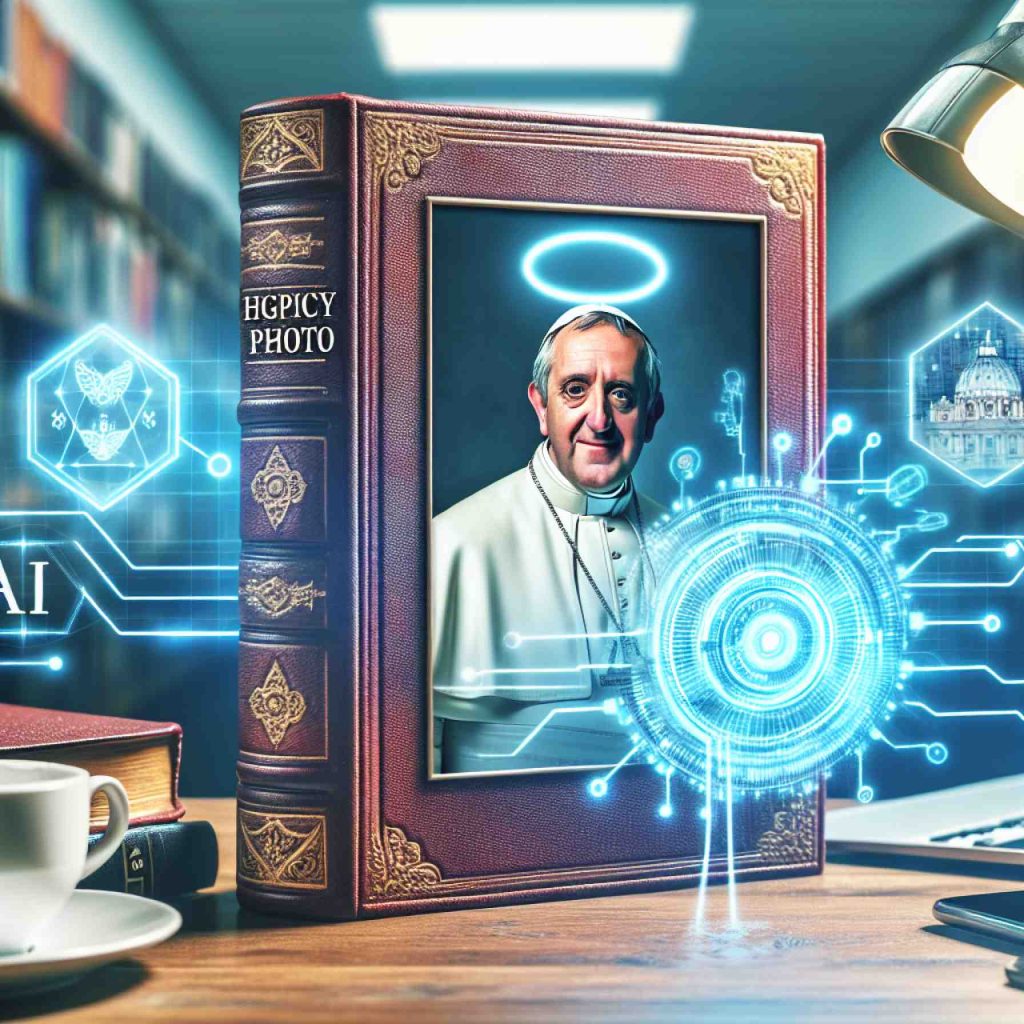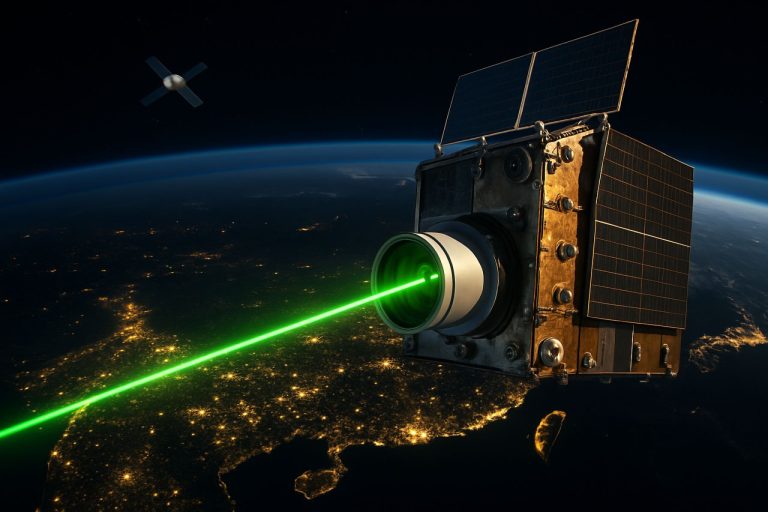
- Pope Leo XIV, the first American-born pope, draws inspiration from Leo XIII’s legacy of social justice to address modern challenges.
- His inaugural address highlights the transformative impact of AI, paralleling it with the Industrial Revolution’s societal shifts.
- Leo XIV warns of AI’s potential to exacerbate job displacement, misinformation, and socio-economic inequalities.
- The pope calls for adapting Catholic teachings to ensure technology enhances humanity rather than exploiting it.
- He emphasizes creating solutions to uphold human dignity amidst AI’s growing influence.
- Leo XIV aims to integrate moral guidance with technological progress, promoting justice, equity, and human dignity in the AI era.
Under the vaulted ceilings of the Vatican’s New Synod Hall, a new chapter in the papacy unfolded as Pope Leo XIV revealed the thoughtful inspiration behind his chosen name. As he stood before the centuries-old assembly of cardinals, the air was charged with anticipation. This was not just a routine inaugural address; it was a proclamation of intent for an era teetering on the cusp of an AI revolution.
Leo XIV, born Cardinal Robert Prevost and the first American-born pope, chose his name to channel the visionary legacy of Leo XIII. That predecessor, a stalwart figure during the tumult of the Industrial Revolution, was known for his firm dedication to social justice—a commitment crystallized in his seminal encyclical, “Rerum Novarum.” It was this encyclical that laid the early foundations for modern Catholic social teachings, and it is this same document that now gains renewed relevance in today’s rapidly evolving technological landscape.
The new pope articulated a deep concern for the profound implications of artificial intelligence. Just as the Industrial Revolution redefined labor and societal norms, so too does AI threaten to reshape the world, and not always for the better. AI stands at a precarious junction, producing wonders and generating unease. From the distress of job displacement to the disquiet of unregulated digital spaces, the challenges are as paradoxical as the technology itself.
In an era where AI can craft deceptively realistic images—like the notorious AI-generated image of Pope Francis in a trendy puffer jacket that went viral—Leo XIV’s message vibrates with urgency. He echoed the cautions of his predecessor, Francis, who warned of AI’s potential to propagate falsehoods, create informational “echo chambers,” and entrench socio-economic divides.
Leo XIV’s choice of name is more than symbolic. It acts as a clarion call to adapt age-old teachings to confront new-age dilemmas. Speaking without ambiguity, he underscored the need for solutions that uphold human dignity in the face of AI’s encroaching influence. His vision is to craft a world where technology advances not at the cost of humanity but to its benefit, enriching lives rather than exploiting them.
As the thrumming worries of a society grappling with AI’s implications ripple across the globe, Leo XIV steps onto the world stage. His quest: to weave together the threads of moral guidance and technological advancement, ensuring that as we march boldly into the AI era, we do so with an unwavering commitment to justice, equity, and the profound dignity of every human being.
Pope Leo XIV: Bridging the Past with the Future in the Age of AI
The election of Pope Leo XIV, the first American-born pope, marks a significant shift in the papacy, as it aligns with the intersection of profound historical wisdom and the urgent challenges of the AI era. His choice of name not only connects him with Leo XIII, known for his groundbreaking social justice contributions during the Industrial Revolution, but also sets the tone for proactive dialogue on current technological advancements and their societal impacts.
Deep Dive into AI and Its Implications
1. Historical Context and Relevance:
Pope Leo XIII’s “Rerum Novarum” was a pioneering document that addressed the social inequalities of the Industrial Era. Today, similar socio-economic challenges are surfacing due to AI, warranting a modern application of these teachings.
2. AI Concerns of Today:
Leo XIV’s proclamation emphasizes the dual nature of AI—it can bring remarkable advancements yet pose serious risks, such as job displacement, privacy issues, and the widening of socio-economic gaps. The AI-generated image of Pope Francis is a prime example of AI’s potential to blur the lines between reality and fabrication, raising alarm on the spread of misinformation.
3. Ethical AI Use:
The new pope calls for the rigorous regulation of AI technologies to maintain ethical standards, advocating for AI development that prioritizes humanity’s condition over profits and efficiency.
How-To Steps & Life Hacks for Ethical AI Integration
1. AI Literacy:
– Equip individuals and communities with AI literacy.
– Encourage educational programs focused on understanding AI’s mechanics and its societal implications.
2. Inclusive Policy-Making:
– Advocate for diverse voices in tech policy discussions to ensure comprehensive regulatory frameworks.
– Support international cooperation in forming AI standards.
3. Promoting Equitable AI:
– Ensure AI systems are designed to reduce biases and support underserved populations.
– Promote transparency in AI algorithms to gain public trust and drive innovation equitably.
Real-World Use Cases and Industry Trends
– Healthcare Revolution: AI’s use in diagnostics and treatment optimization shows immense promise but necessitates guidelines to protect patient privacy and ensure equitable access.
– Employment Shifts: Automation might replace certain jobs, yet it also has the potential to create new opportunities in the tech sector, necessitating reskilling initiatives.
Reviews & Comparisons: AI Technology and Moral Perspectives
Comparing AI technology development with Catholic social teachings reveals both opportunities and tensions. The emphasis on ethical considerations underlines the importance of holding technology accountable to societal norms and values.
Insights & Predictions
– AI is projected to significantly alter global labor markets and economic structures, demanding a proactive adaptation approach.
– By 2030, AI’s impact is expected to be profound, with a possible increase in GDP by up to 15% globally, but this highlights the urgency for equitable policy frameworks to manage this growth responsibly (source: PwC’s Global AI Study).
Pros & Cons Overview
Pros:
– Enhance productivity and efficiency across sectors.
– Potential for unprecedented advancements in medicine and environmental management.
Cons:
– Risks of job displacement and increasing inequality.
– Ethical dilemmas related to privacy and AI’s decision-making authority.
Actionable Recommendations
– Encourage governments to implement AI ethics committees to oversee AI developments and ensure alignment with human rights and ethical standards.
– Support the Catholic Church’s initiatives in fostering dialogues between AI creators and ethicists.
– Individuals should seek continuous learning on AI’s potential and limitations to advocate for responsible usage in personal and professional spheres.
By navigating the juxtaposition of tradition and technological revolution, Pope Leo XIV’s leadership aims to ensure that AI enriches humanity rather than exploiting it. His stance is an invitation to all sectors to embed these values at the heart of technological advancement. For more insights about the Vatican’s role in modern challenges, visit the official Vatican site.



